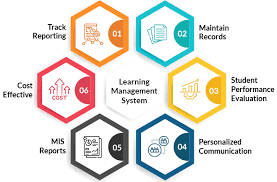
In recent years, the adoption of Learning Management Systems (LMS) has become increasingly widespread across educational institutions and corporate training departments. A crucial component that enhances these platforms is the test engine functionality. This integration transforms conventional LMS into dynamic environments where learning assessment becomes an integral part of the education and training process.
Test engines in an LMS serve multiple purposes, catering to a range of testing needs from simple quizzes to complex exams. The key features that stand out in these systems include automated test creation, randomized question pools, time controls, various question types (such as multiple-choice, fill-in-the-blank, essay, matching), immediate feedback options, and detailed analytics for both instructors and students.
One significant aspect of LMS-based test engines is their ability to personalize learning. Adaptive testing algorithms can adjust the difficulty of questions based on learner performance in real-time, ensuring a tailored experience that can cater to individual strengths and weaknesses. This level of customization encourages active learning and retention while reducing the one-size-fits-all approach to education.
The benefits of test engines extend beyond personalized learning. For instructors or training managers, these systems provide powerful tools for monitoring progress and understanding how learners interact with material. Rich data analytics offer insights into areas where learners excel or struggle, enabling targeted interventions or additional resources to be routed where most needed.
Moreover, the digitization of assessment through LMS test engines results in substantial time and resource savings. Automatic grading systems liberate educators from the tedium of manual marking, allowing them to devote more time to other critical pedagogical tasks. These efficiencies also contribute to scalability, enabling one instructor to manage the learning outcomes of many students simultaneously without compromising quality.
Social implications come into focus when considering accessibility. An LMS with a robust test engine can offer accommodations such as extended time or alternative formats for students with disabilities. This inclusivity ensures equal opportunity for all learners while upholding academic integrity.
Security concerns are also paramount in online testing situations. Advanced LMS platforms tackle this challenge through secure browsers or lockdown features that prevent cheating or unauthorized access during assessments. Alongside this, anti-plagiarism tools may be integrated to maintain high academic standards.
The future trajectory for LMS with test engines points towards increasingly sophisticated artificial intelligence applications. AI could revolutionize test engines by facilitating dynamic question generation that not only evaluates knowledge but also critical thinking and problem-solving abilities at higher cognitive levels.
From traditional educational settings to cutting-edge corporate training programs, incorporating tests engine functionality into Learning Management Systems has proven invaluable. By advancing educational technology’s frontier through continual innovations, LMS equipped with robust testing capabilities will likely remain central pillars in the landscape of digital education and training for years to come.
